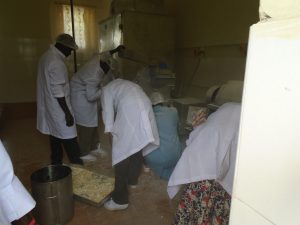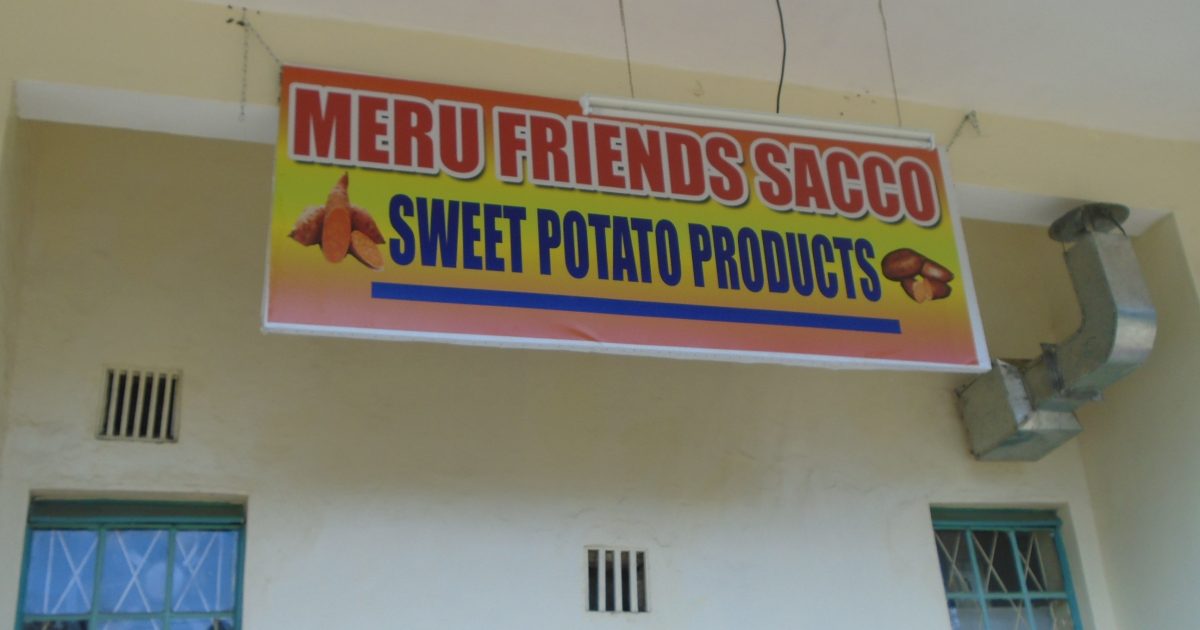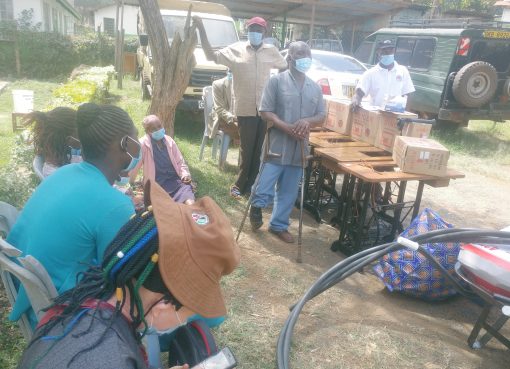

Sweet potato farmers in the Nyambene Region of Meru County had hope for their farm produce that had started picking up as miraa, the crop they had for many years relied on, faced rejection from the international market.
The hope for these farmers came into reality when a sweet potatoes value chain development project was implemented by National Draught Management Authority (NDMA) with financial support from the European Union which was launched on March 28, 2018 by the Meru county governor, Kiraitu Murungi.
To achieve a sustainable livelihood from the project, the sweet potato farmers pooled their resources by forming the Meru Friends Sacco and with support from NDMA started a processing plant. The plant makes eleven products from orange fleshed sweet potatoes. The factory products comprise of bread, bans, crisps and other types of sweet cakes which are then distributed to the nine sub counties of Meru County.
Speaking during the opening of the plant in 2018, the then Meru Regional NDMA Coordinator, Benedict Musyoka expressed his greatest optimism that the factory would not only provide market for the farmers’ produce but also increase food security in the region.
Musyoka emphasized the need for the farmers to continue growing drought resistance crops like cassava, sweet potatoes and yams terming them as the best meals not only because of their medicinal value but also their economic potential.
“These indigenous drought resistant crops when processed will be added value which will boost economic status of the farmers through selling them locally and nationally,” the NDMA Regional Coordinator had said.
He further revealed that the consumption of products from these indigenous foods would reduce lifestyle diseases such as diabetes and obesity.
The orange fleshed sweet potatoes are drought resistant crops which can be inter cropped with miraa which is the chief cash crop from the region. In addition the crop is ready for the market throughout the year hence ensuring constant supply to the factory.
“The factory buys one kilogram of orange fleshed sweet potatoes from the farmers at Sh.50,” Doris Gakii, the manager of the Sacco told KNA last week.
Membership to the Sacco is through registration. “Members join the Sacco by paying Sh. 1,700 broken down as Sh. 1,000 for shares, Sh. 500 for registration and Sh. 200 for savings, “she explained.
“The accrued benefits of the company is to give farmers market for their products, creates job opportunities, offer loan facilities and train the farmers on productive farming methods not only on the sweet potatoes but also on other crops,” Ms. Gakii said.
However, with the coronavirus pandemic the management of the plant has faced several challenges that are negatively trickling down to the sweet potato farmers who had started to reap from the food chain development project.
“We are faced with difficulties in marketing due to movement restrictions brought by the Covid-19 curfews and social distancing that translate into poor sales,” Ms. Gakii explained, adding that the company has also laid off some workers due to low revenue.
She said besides the decrease in products consumption necessitated by Covid-19 pandemic that has brought down the purchasing power of their customers transportation means has also been a challenge.
“We have only one motorbike and a tuk tuk hence the access to a wider market to counter the decreasing number of customers in our current catchment is an uphill task,” lamented the plant manager.
With the miraa business that has suffered international onslaught but still remains the major source of income, among the Meru of this region also suffering from the effects of the coronavirus pandemic.
Women who hardly own land in this region were the biggest beneficiaries of this plant that promoted a crop that can be cultivated without much ado over land ownership traditions. The few remaining factory employees are also living in fear of being laid off if this global threat is not controlled soon.
By Kamanja Maeria





